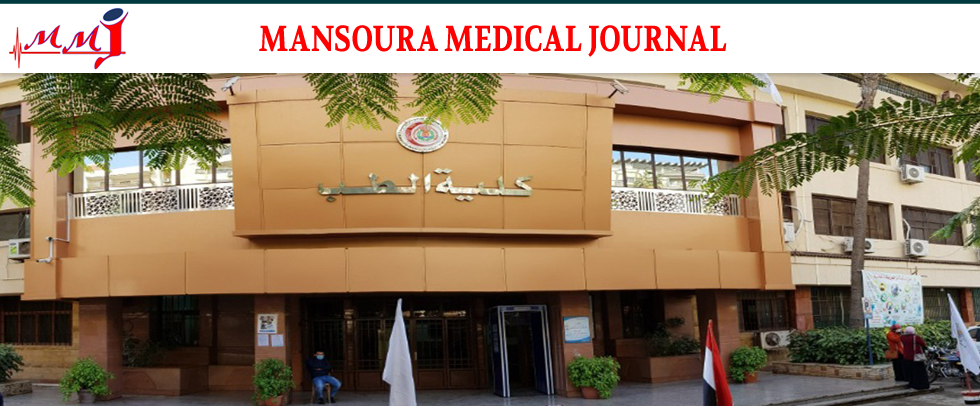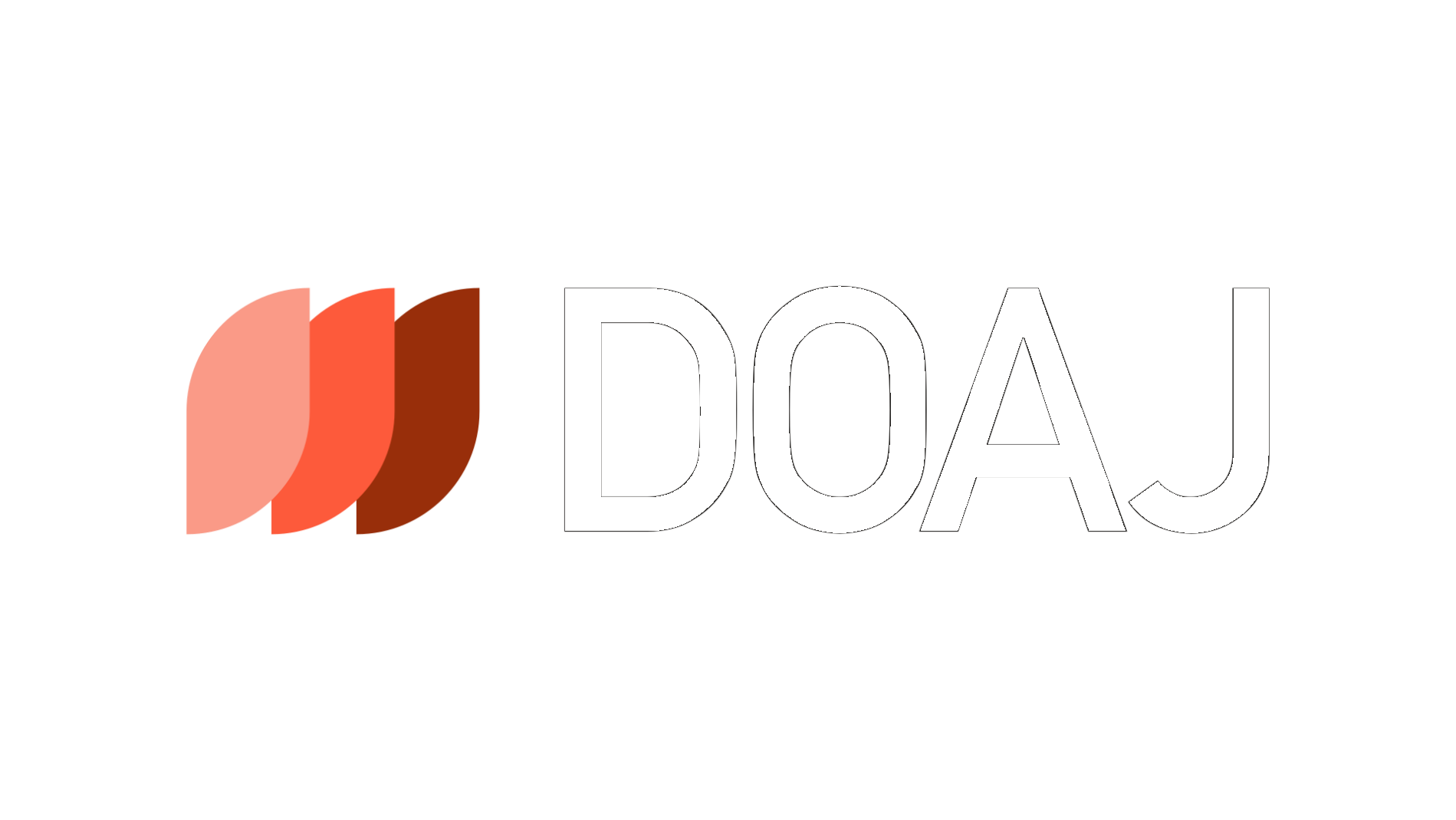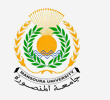Publication Ethics
Duties of Editors
Publication decisions
The editorial board of the journal is responsible for deciding which of the articles submitted to the journal should be published. Members of the board confer and refer to reviewer recommendations in making this decision, constrained by legal requirements related to libel, copyright infringement, and plagiarism. Editorial decisions are not affected by the origins of the manuscript, including the nationality, ethnicity, political beliefs, race, or religion of the authors.
Confidentiality, disclosure, and conflicts of interest
During the review process, editors must not disclose information about a submitted manuscript to anyone other than the corresponding author, reviewers, potential reviewers, and other editorial advisers. Unpublished materials disclosed in a submitted manuscript must not be used in an editor's, reviewers, or any other reader's own research without the express written consent of the author. Readers should be informed about who has funded the research or other scholarly work and whether the funders had any role in the research and its publication and, if so, what this was.
Author relations
Editors strive to ensure that peer review at the journal is fair, unbiased, and timely. The journal has established policies for handling submissions from editorial board members to ensure unbiased review. Author instructions provide guidance about criteria for authorship.
Reviewer relations
The journal encourages reviewers to comment on ethical questions and possible misconduct raised by submissions (e.g. unethical research design, and inappropriate data manipulation), and to be alert to redundant publication and plagiarism. Reviewers’ comments should be sent to authors in their entirety unless they contain offensive or libelous remarks. Contributions of reviewers to the journal are regularly acknowledged, and ceases to use reviewers who consistently produce discourteous, poor quality, or late reviews.
Quality assurance
Editors should take all reasonable steps to ensure the quality of the material they publish, recognizing that different sections have different aims and standards. Editors should seek assurances that the research they publish has been approved by an appropriate body (e.g. research ethics committee, institutional review board) where one exists. Editors should be alert to intellectual property issues and work with their publisher to handle potential breaches of laws and conventions. Errors, inaccurate, or misleading statements must be corrected promptly and with due prominence.
Duties of Reviewers
Contribution to editorial decisions
Reviewers assist the editorial board in making editorial decisions. Reviews should be conducted objectively, and observations should be formulated clearly with supporting arguments so that authors can use them for improving the paper. Personal criticism of the author is inappropriate.
Qualification of reviewers
Any selected referee who feels unqualified to review the research reported in a manuscript or knows that its prompt review will be impossible should notify the editor and excuse himself from the review process. Reviewers should not consider manuscripts in which they have conflicts of interest resulting from competitive, collaborative, or other relationships or connections with any of the authors, companies, or institutions connected to the papers.
Confidentiality
Any manuscripts received for review must be treated as confidential documents. Privileged information or ideas obtained through peer review must be kept confidential and not used for personal advantage.
Acknowledgement of sources
Reviewers should identify relevant published work that has not been cited by the authors. References to the ideas of others should be accompanied by the relevant citation. A reviewer should also call to the editor's attention any substantial similarity or overlap between the manuscript under consideration and any other published paper of which they have personal knowledge.
Duties of Authors
Reporting standards
Authors of reports of original research should present an accurate account of the work performed as well as an objective discussion of its significance. Underlying data should be represented accurately in the paper. Authors should be prepared to provide public access to raw data in connection with a paper and retain such data for at least two years after publication. Fraudulent or knowingly inaccurate statements constitute unethical behavior and are unacceptable.
Originality, plagiarism and concurrent publication
Authors should ensure their work is entirely original and that any work and/or words of others have been appropriately acknowledged. Plagiarism in all its forms constitutes unethical publishing behavior and is unacceptable. Submitting essentially the same manuscript to more than one journal concurrently constitutes unethical publishing behavior and is unacceptable.
Authorship of the paper
The corresponding author should ensure that all appropriate co-authors and no inappropriate co-authors are included on the paper, and that all co-authors have seen and approved the final version of the paper and have agreed to its submission for publication. All those who have made significant contributions should be listed as co-authors. Others who have participated in certain substantive aspects of the research project should be acknowledged or listed as contributors.
Authorship Criteria
Authorship credit should be based only on substantial contributions to each of the three components mentioned below:
1. Concept and design of study or acquisition of data or analysis and interpretation of data;
2. Drafting the article or revising it critically for important intellectual content; and
3. Final approval of the version to be published.
Participation solely in the acquisition of funding or the collection of data does not justify authorship. General supervision of the research group is not sufficient for authorship. Each contributor should have participated sufficiently in the work to take public responsibility for appropriate portions of the content of the manuscript. The order of naming the contributors should be based on the relative contribution of the contributor towards the study and writing the manuscript. Once submitted the order cannot be changed without written consent of all the contributors. The journal prescribes a maximum number of authors for manuscripts depending upon the type of manuscript, its scope and number of institutions involved (vide infra). The authors should provide a justification, if the number of authors exceeds these limits.
Contribution details
Contributors should provide a description of contributions made by each of them towards the manuscript. Description should be divided in following categories, as applicable: concept, design, definition of intellectual content, literature search, clinical studies, experimental studies, data acquisition, data analysis, statistical analysis, manuscript preparation, manuscript editing and manuscript review. Authors' contributions will be printed along with the article. One or more author should take responsibility for the integrity of the work as a whole from inception to published article and should be designated as 'guarantor'.
Studies in humans and animals
If the work involves the use of human subjects, the author should ensure that the work described has been carried out in accordance with The Code of Ethics of the World Medical Association (Declaration of Helsinki) for experiments involving humans. The manuscript should be in line with the Recommendations for the Conduct, Reporting, Editing and Publication of Scholarly Work in Medical Journals and aim for the inclusion of representative human populations (sex, age, and ethnicity) as per those recommendations. The terms sex and gender should be used correctly.
Authors should include a statement in the manuscript that informed consent was obtained for experimentation with human subjects. The privacy rights of human subjects must always be observed.
All animal experiments should comply with the ARRIVE guidelines and should be carried out in accordance with the U.K. Animals (Scientific Procedures) Act, 1986 and associated guidelines, EU Directive 2010/63/EU for animal experiments, or the National Research Council's Guide for the Care and Use of Laboratory Animals and the authors should clearly indicate in the manuscript that such guidelines have been followed. The sex of animals must be indicated, and where appropriate, the influence (or association) of sex on the results of the study.
Plagiarism
The journal has a strict policy against plagiarism. All submitted manuscripts are checked for plagiarism using professional plagiarism-checking software. Submitted manuscripts with an unacceptable similarity index resulting from plagiarism are rejected immediately.
Complaints/Appeals
All complaints, concerns, or appeals regarding authorship issues or the peer-review process, including concerns raised post-publication, should be addressed to the Editors-in-Chief, who shall investigate the claims by first, requesting information from all parties involved and second, propose a course of action in line with academic ethical principles as outlined by the Committee on Publishing Ethics (COPE; https://publicationethics.org/). Submissions can be halted in the review or publication process until the issue are resolved. In situations, when Editors-in-Chief are involved in the complaint, the Editorial Board members, led by the most senior member, investigate the claims and propose a course of action.
Conflicts of Interest/Competing Interests
All authors of articles must disclose any and all conflicts of interest they may have with publication of the manuscript or an institution or product that is mentioned in the manuscript and/or is important to the outcome of the study presented. Authors should also disclose conflict of interest with products that compete with those mentioned in their manuscript.
Confidentiality
A submitted manuscript is confidential material. Mansoura Medical Journal will not disclose submitted manuscripts to anyone except individuals who partake in the processing and preparation of the manuscript for publication (if accepted). These individuals include editorial staff, corresponding authors, potential reviewers, actual reviewers, and editors. However, in suspected cases of misconduct, a manuscript may be revealed to members of Mansoura Medical Journal's ethics committees and institutions/organizations that may require it for the resolution of the misconduct. Mansoura Medical Journal shall follow the appropriate COPE flowcharts wherever necessary.
Misconduct
Misconduct constitutes a violation of this editorial policy, journal policies, publication ethics, or any applicable guidelines/policies specified by COPE, WAME, ICMJE, and STM. Any other activities that threaten/compromise the integrity of the research/publication process are potential misconduct. Suspected cases of misconduct will be investigated according to COPE guidelines.
Correction and Retraction of Articles
Corrections may be made to a published article with the authorization of the editor of the journal. Editors will decide the magnitude of the corrections. Minor corrections are made directly to the original article. However, in cases of major corrections, the original article will remain unchanged, while the corrected version will also be published. Both the original and corrected version will be linked to each other. A statement indicating the reason for the major change to the article will also be published. When necessary, retraction of articles will be done according to COPE retraction guidelines.
Acknowledgement
Individuals who participated in the development of a manuscript but do not qualify as an author should be acknowledged. Organizations that provided support in terms of funding and/or other resources should also be acknowledged.
Informed Consent
Patients have a right to privacy that should not be violated without informed consent. Identifying information, including names, initials, or hospital numbers, should not be published in written descriptions, photographs, or pedigrees unless the information is essential for scientific purposes and the patient (or parent or guardian) gives written informed consent for publication. Informed consent for this purpose requires that an identifiable patient be shown the manuscript to be published. Authors should disclose to these patients whether any potentially identifiable material might be available via the Internet as well as in print after publication. Patient consent should be written and archived either with the journal, the authors, or both, as dictated by local regulations or laws. Nonessential identifying details should be omitted. Informed consent should be obtained if there is any doubt that anonymity can be maintained. For example, masking the eye region in photographs of patients is inadequate protection of anonymity. If identifying characteristics are altered to protect anonymity, such as in genetic pedigrees, authors should provide assurance, and editors should so note, that such alterations do not distort scientific meaning. When informed consent has been obtained, it should be indicated in the published article.



